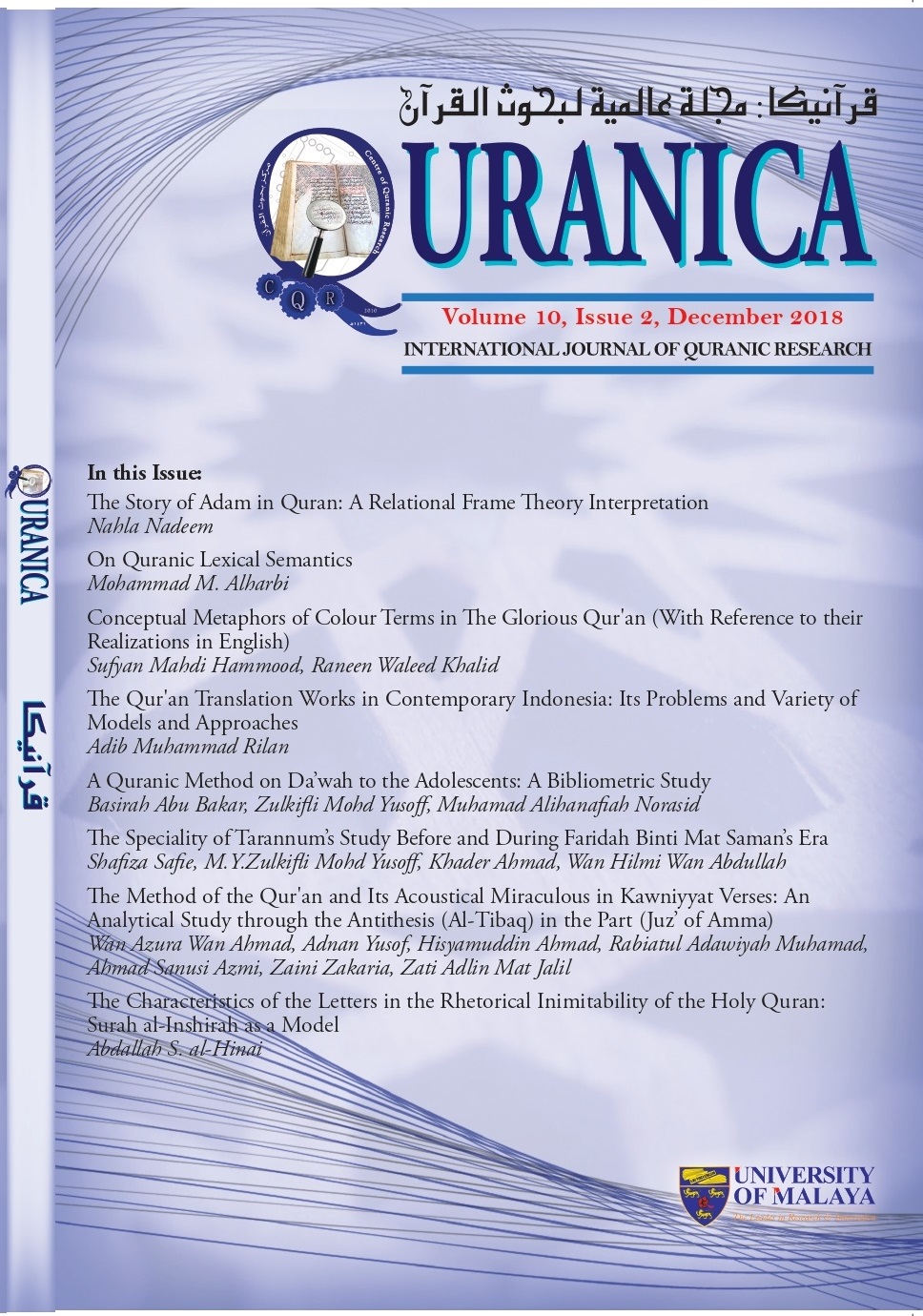On Quranic Lexical Semantics
Main Article Content
Abstract
Starting from Levin and Rappaport Hovav’s (2005) argument that lexical semantic properties of words determine their morphosyntactic behaviour, this paper addresses the relationship between the lexical semantic properties a word bears and its linguistic behaviour in the Quranic text. Specifically, the paper seeks to address the following question: Do lexical items demonstrate a linguistic behaviour that is compatible with their lexical semantic properties and the properties of the context they appear in? Through scrutinizing those semantic properties of a group of lexical items that appear in different contexts in the Quran and their linguistic behaviour in terms of the grammatical, semantic, morphological and pragmatic functions they serve in the text, we aim to argue in favour of the fact that the selection of words in the Quranic text is not haphazard, rather it conforms with the contextual properties, the lexical semantic properties of the word, and the linguistic function they serve. The paper concludes that words in the Quranic text do not act haphazardly. Rather, their morphosyntactic behaviour and occurrences are governed by, among other things, the lexical semantic properties they encapsulate and the properties of the context they appear in.
Downloads
Article Details
Disclaimer
QURANICA makes every effort to ensure the accuracy of all its contents. However, opinions, discussions, views and recommendations are expressed in this journal do not necessarily reflect the official policy of QURANICA or views of its editors or publishers. Therefore, QURANICA and its publishers will not be liable for any controversy may be arisen. The journal reserves the right, at its sole discretion, to change its terms and conditions of publications.
Copyright
It is a condition of publication that manuscript submitted to the journal have not been published, accepted for publication, nor simultaneously submitted for publication elsewhere. By submitting a manuscript, the author(s) agrees that copyright for the article is transferred to the publisher, if and when the manuscript is accepted for publication.
